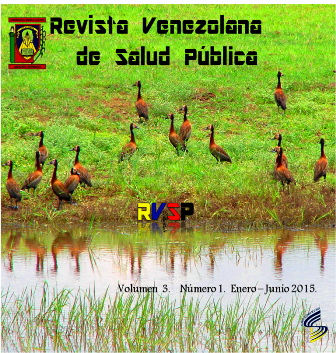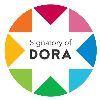Una Reflexión sobre la influencia de los genes en nuestra vida social
Palabras clave:
Social, herencia, genes, sociedad, AmbienteResumen
Todas las personas somos seres sociales y ese contacto define nuestra personalidad por la forma como nos comportamos en el medio ambiente donde habitamos. El comportamiento social no es aleatorio, está influenciado por la aparición de rasgos o no que son heredados a través de los genes.
Descargas
Citas
2. Edwards M, Bigham A, Tan J, Li S, Gozdzik A, Ross K, et al. Association of the OCA2 polymorphism His615Arg with melanin content in east Asian populations: further evidence of convergent evolution of skin pigmentation. PLoS Genet 2010; 6(3): e1000867.
3. Verhoeven VJ, Hysi PG, Wojciechowski R, Fan Q, Guggenheim JA, Höhn R, et al. Genome-wide meta-analyses of multiancestry cohorts identify multiple new susceptibility loci for refractive error and myopia. Nat. Genet 2013; 45(3): 314-318.
4. Mordechai S, Gradstein L, Pasanen A, Ofir R, El Amour K, Levy J, et al. High Myopia Caused by a Mutation in LEPREL1, Encoding Prolyl 3-Hydroxylase 2. Am J Hum Genet 2011; 89 (3): 438-445.
5. Morgan IG. Myopia. The Lancet 2012; 379(9827): 1739-1748.
6. Polanco SIL, Rodríguez WB, González ML. La miopía degenerativa desde una perspectiva social. Revista Cubana de Oftalmología. 2014; 27(3): Página por asignar.
7. Walum H, Westberg L, Henningsson S, Neiderhiser JM, Reiss D, Igl W, et al. Genetic variation in the vasopressin receptor 1a gene (AVPR1A) associates with pair-bonding behavior in humans. Proc Natl Acad Sci USA 2008; 105(37): 14153-14156.
8. Kogana A, Saslow LR, Impett EA, Oveis C, Keltner D, Saturn SR. Thin-slicing study of the oxytocin receptor (OXTR) gene and the evaluation and expression of the prosocial disposition. Proc Natl Acad Sci USA 2011; 108(48): 19189-19192.
9. Ferguson JN, Aldag JM, Insel TR, Young LJ. Oxytocin in the Medial Amygdala is Essential for Social Recognition in the Mouse. J Neurosci 2001; 21(20): 8278-8285.
10. Frydman C, Camerer C, Bossaerts P, Rangel A. MAOA-L carriers are better at making optimal financial decisions under risk. Proc R Soc B 2011; 278(1714): 2053-2059.
11. De Neve JE. Functional polymorphism (5-HTTLPR) in the serotonin transporter gene is associated with subjective well-being: evidence from a US nationally representative sample. J Hum Genet 2011; 56(6): 456-459.
12. Fernández AP, Serrano J, Tessarollo L, Cuttitta F, Martínez A. Lack of adrenomedullin in the mouse brain results in behavioral changes, anxiety, and lower survival under stress conditions . Proc Natl Acad Sci USA 2008; 105(34): 12581-12586.
13. Allebrandt KV, Amin N, Müller-Myhsok B, Esko T, Teder-Laving M, Azevedo RVDM, et al. Mol Psychiatry 2013; 18: 122-132.
14. Desrivières S, Lourdusamy A, Tao C, Toro R, Jia T, Loth E, et al. Single nucleotide polymorphism in the neuroplastin locus associates with cortical thickness and intellectual ability in adolescents. Mol Psychiatry 2014; Feb 11: 1-12.
15. Stein JL, Medland SE, Vasquez AA, Hibar DP, Senstad RE, Winkler MA, et al. Identification of common variants associated with human hippocampal and intracranial volumes. Nat Genet 2012; 44: 552-
Publicado
Cómo citar
Número
Sección
Derechos del/de autor/es a partir del año de publicación
Esta obra está bajo la licencia:
Creative Commons Reconocimiento-NoComercial-CompartirIgual 4.0 Internacional (CC BY-NC-SA 4.0)
Las opiniones expresadas por los autores no necesariamente reflejan la postura del editor de la publicación ni de la UCLA. Se autoriza la reproducción total o parcial de los textos aquí publicados, siempre y cuando se cite la fuente completa y la dirección electrónica de esta revista. Los autores(as) tienen el derecho de utilizar sus artículos para cualquier propósito siempre y cuando se realice sin fines de lucro. Los autores(as) pueden publicar en internet o cualquier otro medio la versión final aprobada de su trabajo, luego que esta ha sido publicada en esta revista.






